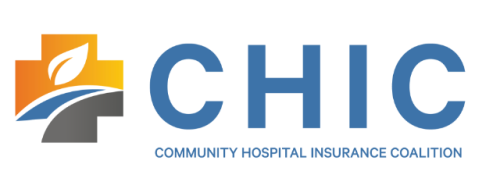Health FSA – $2,700 Contribution Limit and Qualified Transportation Fringe Benefit Limits for 2019
2019 Patient-Centered Outcomes Research Trust Fund (“PCORTF”) Fees
IRS Extends Deadline for Furnishing Form 1095, Extends Good-Faith Transition Relief
The Know the Lowest Price Act and The Patient Right to Know Drug Prices Act
Health FSA – $2,700 Contribution Limit and Qualified Transportation Fringe Benefit Limits for 2019
For 2019, the dollar limit on employee salary reduction contributions to health flexible spending arrangements (“FSAs”) will increase to $2,700 (a $50 increase from the 2018 limit of $2,650). This $2,700 limit continues to apply on a rolling basis, effective for plan years beginning January 1, 2019.
Limit continues only to apply to salary reduction: The $2,700 limit generally continues to apply only to salary reduction contributions by the employee and not to employer non-elective contributions which are usually available to an employee to be used only for one or more qualified benefits. For example, if an employer contributes $500 to each employee’s health FSA for the 2019 plan year, each employee may still elect to make salary reduction contributions of $2,700 to the health FSA for that plan year. However, if an employer provides a contribution that an employee may elect to receive as cash or as a taxable benefit, the contribution will be subject to the $2,700 limit.
Limit only applies to health FSAs: The statutory $2,700 limit applies only to salary reduction contributions under a health FSA. The limit does not apply to employee salary reduction contributions to an FSA for dependent care assistance or adoption care assistance.
Limit applies on an employee-by-employee basis: The maximum salary reduction contribution each employee may make for a plan year is $2700, regardless of the number of individuals whose medical expenses are reimbursable under the health FSA (i.e. spouses, dependents, etc). If two spouses are each eligible to elect salary reduction contributions to an FSA, however, each spouse may elect to make salary reduction contributions up to $2,700, even if both spouses participate in the same FSA sponsored by the same employer.
Amending your Cafeteria Plan: A cafeteria plan offering a health FSA must be amended to set forth the $2,700 limit (or at the employer’s discretion, a lower limit). HealthSure, however, will amend your cafeteria plan to ensure compliance with the $2,700 limit by your plan year beginning January 1, 2019. If you do not choose to amend your plan to set forth the $2,700 limit please notify your HealthSure Account Executive.
Additionally, the IRS has released the 2019 cost-of-living adjustments for qualified transportation fringe benefits.
Parking Expenses: For 2019, the monthly limit on the amount that may be excluded from an employee’s income for qualified parking benefits will increase to $265, which is five dollars greater than the amount in 2018.
Transit Passes and Vanpooling Expenses: The combined monthly limit for transit passes and vanpooling expenses for 2019 will also increase to $265, which is five dollars greater than the amount in 2018.
If you have any questions, please do not hesitate to contact any member of the HealthSure Account Executive Team.
2019 Patient-Centered Outcomes Research Trust Fund (“PCORTF”) Fees
This Update serves as a reminder that the annual Patient-Centered Outcomes Research Trust Fund (“PCORTF”) fees are due by July 31, 2019. By way of background, ACA imposes PCORTF fees on health insurers and self-funded plan sponsors for plan years ending on or after September 30, 2012 and before October 1, 2019. The fee is due by July 31 of the calendar year immediately following the last day of the plan year in which the applicable plan ended. The PCORFT fees fund the Patient Centered Outcome Research Institute (PCORI), which was established by Congress through the Affordable Care Act in 2010.
For plan years ending on or after October 1, 2017, and before October 1, 2018, the fee is $2.39 multiplied by the average number of lives (employees and dependents) covered under the plan for the plan year. For plan years ending on or after October 1, 2018 and before October 1, 2019, the fee is $2.45 multiplied by the average number of lives (employees and dependents) covered under the plan for the plan year.
For ease of reference, the following chart outlines the applicable fees that must be paid in 2019 and 2020 based on the plan year start dates.
[table id=1 /]
Form 720 (Quarterly Federal Excise Tax Return) is the form used by plan sponsors of group health plans to report and pay the annual PCORTF fee. (Please note that while Form 720 is filed quarterly for several other federal excise taxes, the PCORTF fee is only required annually, on the second-quarter filing. Accordingly, if a plan sponsor files Form 720 only to report PCORTF fees, a Form 720 should not be filed for the first, third, or fourth quarter.)
The plan sponsor completing Form 720 must report the average number of covered medical lives (employees and dependents) under its plan(s) subject to the PCORTF fee. The instructions briefly reference the alternative methods for calculating the average number of lives covered by a plan for the applicable plan year, and how to complete Form 720. (Of each of the methods listed, HealthSure believes that the snapshot count method is the most suitable approach to use in determining the average number of medical lives during the applicable plan year. )
What Plan Sponsors Need To Do:
Nothing at this point. You will receive a reminder Update next spring, discussing Form 720 and its corresponding instructions in more detail, as well as explaining how you should calculate the average number of lives.
Please note and as discussed above, plan sponsors must pay the annual PCORTF fee via the Form 720 by July 31, 2019.
If you have any questions or need assistance in running the census reports, please do not hesitate to contact any member of the HealthSure Account Executive Team.
IRS Extends Deadline for Furnishing Form 1095, Extends Good-Faith Transition Relief
The Internal Revenue Service (IRS) has released Notice 2018-94, extending the deadline for furnishing 2018 Forms 1095-B and 1095-C to individuals from January 31, 2019 to March 4, 2019, as well as penalty relief for good-faith reporting errors.
The due date for filing the forms with the IRS was not extended and remains February 28, 2019 (April 1, 2019 if filed electronically). Despite the repeal of the “individual mandate” beginning in 2019 as part of the Tax Cuts and Jobs Act, the ACA’s information reporting requirements remain in effect, as the IRS uses the reporting to administer the employer mandate and premium tax credit program. The IRS is studying whether and how the reporting requirements under section 6055 (relating to insurance companies and self-insured plans) should change, if at all, for future years.
The instructions to Forms 1094-C and 1095-C allow employers to request a 30-day extension to furnish statements to individuals by sending a letter to the IRS with certain information, including the reason for delay. However, because the Notice’s extension of time to furnish the forms is as generous as the 30-day extension contained in the instructions, the IRS will not formally respond to requests for an extension of time to furnish 2018 Forms 1095-B or 1095-C to individuals.
Employers may still obtain an automatic 30-day extension for filing with the IRS by filing Form 8809 on or before the forms’ due date. An additional 30-day extension is available under certain hardship conditions. The Notice encourages employers who cannot meet the extended due dates to furnish and file as soon as possible and advises that the IRS will take such furnishing and filing into consideration when determining whether to abate penalties for reasonable cause.
Extension of Good-Faith Relief
As with calendar year 2015 – 2017 reporting, the IRS will not impose penalties on employers that can show that they made good-faith efforts to comply with the requirements for calendar year 2018. In determining good faith, the IRS will consider whether employers have made reasonable attempts to comply with the requirements (e.g., gathering and transmitting the necessary data to an agent or testing its ability to transmit information) and the steps that have been taken to prepare for next year’s reporting.
Note that the relief applies only to furnishing and filing incorrect or incomplete information, and not to a failure to timely furnish or file. However, if an employer is late filing a return, it may be possible to get penalty abatement for failures that are due to reasonable cause and not willful neglect. In general, to establish reasonable cause the employer must demonstrate that it acted in a responsible manner and that the failure was due to significant mitigating factors or events beyond its control.
As in past years, individuals can file their personal income tax return without having to attach the relevant Form 1095. Taxpayers should keep these forms in their personal records. The IRS may not consider a return for 2018 complete and accurate if the taxpayer does not report full-year coverage, claim a coverage exemption, or report a shared responsibility payment.
President Donald Trump recently signed two bills into law that ban the “gag clauses” that can result in consumers overpaying for their prescriptions.
These two bills—the Know the Lowest Price Act and the Patient Right to Know Drug Prices Act—promote transparency in drug pricing, which, according to the Trump administration, will result in lower drug prices.



